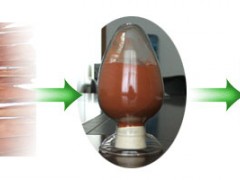Latin Name:Pinus massoniana L.
Part Used:Inner Bark
Source of Plant: China
Active Ingredients:Proanthocyanidins (monomers, oligomers, polymers)
Main function:
Extending the lifetime of vitamin C in the body, prolonging its beneficial effects as an antioxidant.
Helping Vitamin C work better in the brain. Vitamin C is needed for the synthesis of the neurotransmitters norepinephirine, dopamine and serotonin, which are involved with ADD.
Suppressing the production of NO (nitric oxide) and thus limits the collateral damage resulting from immune system attacks on viral and bacterial invaders. Excess NO has been linked to inflammation, rheumatoid arthritis and Alzheimer's disease.
Preventing and treating a condition known as chronic venous insufficiency
Being effective for slowing retinopathy
Lowering blood levels of LDL ("bad") cholesterol moderately
Relieving abdominal pain for women with endometriosis.
Improving concentration and reducing restless behavior for the children with attention deficit hyperactivity disorder (ADHD)
Injecting pine bark extract produced significant reductions in blood sugar levels. taking orally pine bark extract has also shown slight antidiabetic effects.
Fighting aging and restoring wrinkled skin
Main Application:
Pine bark extract can be made into capsules, troche and granule as healthy food and drug.
Pine bark extract which has good solubility in water and ethanol plus the solution transparence and brilliance color, has been widely added into the beverage and cosmetics as the functional ingrendient.
Specifications:
Proanthocyanidins 95% Bate-Smith Method
Polyphenols 70% Folin-C Method
Polyphenols 80% Folin-C Method
Testing Standards:
Appearance:Deep Rose-Red Powder.
Mesh Analysis:Pass 80 Mesh
Bulk Density:35-45g/100ml
Loss on drying:<5%
Ash:<5%
Carriers Used:None
Extract Solvents:Water & Ethanol
Heavy Metals:<10mg/kg
Proanthocyanidins:95% (UV)














